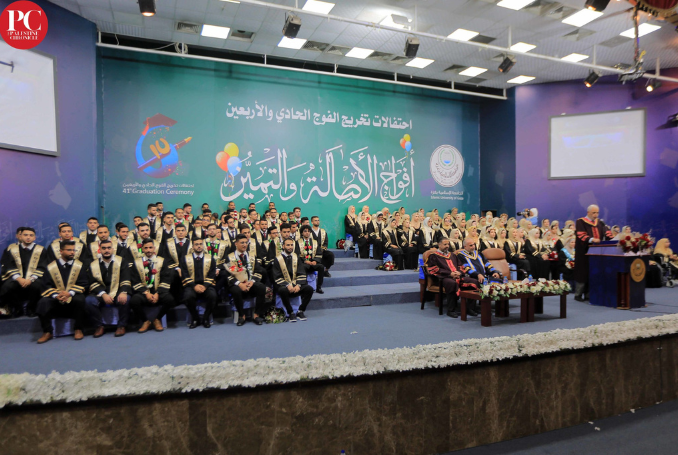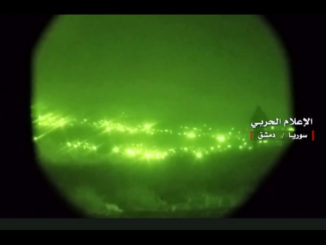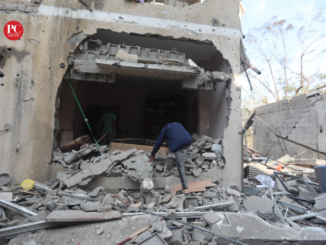
As life in Gaza remains suspended for over eight months, students are some of the most affected.
The ongoing war has halted education both for those inside Gaza and those who managed to flee abroad.
Among them is Abdulrahman, a third-year dentistry student at Al-Azhar University in Gaza, whose dreams have been shattered since the start of Israel’s genocidal war on October 7.
Challenges Abroad
“Once classes started in September 2023, I bought the equipment needed for the first semester, costing 1000 NIS (300$), besides the semester’s fees,” he told The Palestine Chronicle.
Abdulrahman was eager for this year, looking forward to putting theory into practice and dealing with patients. However, his future was abruptly dashed when Israel launched its brutal assault on Gaza.
Abdulrahman and his family lived near Al-Shifa Hospital, an early target for the Israeli military. Despite their determination to stay, relentless bombardment and threats forced them to flee south, deceived into believing it was a ‘safe haven.’
After a month in Khan Yunis, Israel announced a new operation there, prompting another desperate flight to Rafah.
On their way to Rafah, Abdulrahman’s father made a sudden and unnegotiable decision: Abdulrahman and his mother would go to Egypt immediately.
“I didn’t want to travel and leave the rest of my family behind, but my father left me no choice but to pack my bags and get ready,” he recalled. “Everything my father was thinking of was my future.”
With help from Abdulrahman’s sister in the United States, their names were submitted to the US Consulate and approved for departure, though his father, brother, and his brother’s family were left behind.
The father’s primary concern was Abdulrahman’s education. “My father thought that by leaving Gaza, I would be able to complete my education easily outside,” Abdulrahman said, disappointedly. “And I thought so too, but the reality is totally different.”
Gaza’s universities, greatly damaged by relentless bombings, have had their servers deactivated.
“I have been unable to get my registration certificate or my transcripts. Thus, no university in Egypt has yet accepted me,” he commented. Facing two harsh choices, Abdulrahman must either start anew, disregarding his two years of dentistry studies or pay double fees to continue from where he left off, with no guarantee of credit for his previous courses.
“Since I arrived in Egypt, I have been moving from one university to another, and applying to several scholarships online, hoping to get a hopeful email very soon,” expressed Abdulrahman.
He once believed fleeing Gaza would allow him to continue his life, but now he rents a house with his mother, waiting for his fate, which remains tied to the war in Gaza. His story symbolizes the plight of countless students still in Gaza.
Despite his painful ordeal, Abdulrahman may seem fortunate to have escaped the genocide in Gaza. In contrast, hundreds of thousands of students remain trapped, living in fear and terror with their education halted. Their futures, like Abdulrahman’s, hang in the balance, victims of a relentless conflict that shows no signs of abating.
Within the Genocide
Nabila, on the other hand, was supposed to be a four-year medical student this year. Yet, she has found herself forced to deal with a barbaric war that disrupted her plans, leaving her and many others in limbo.
During the eight-month war, Nabila and her family were besieged three times by the Israeli army. Every time, they survived by a miracle. Besides, they have been suffering from famine and endless bombings.
Nabila’s family refused to go south, feeling that “those who go won’t return for a long time, and we didn’t want to leave our home,” she explained.
“I had a fascinating life before the war on Gaza. I had my university, my classes, my colleagues, and my own healthy lifestyle,” Nabila recalled. “But now, I am about to forget what a student looks like.”
‘Full Belly before Death’ – This is How We Are Surviving in Northern Gaza
With determination, Nabila sometimes pushes herself to study for one to three hours at most. She uses her e-SIM card to go online, which barely allows her to watch some medical videos and lessons.
Clinging to a glimpse of hope, Nabila also does her best to find any suitable scholarship to complete her bachelor’s degree in medicine. However, barriers block every road to success that Gazans might take.
“All scholarships require us to start anew, meaning that I should give up on the three years I spent in the Medicine Major,” Nabila told us.
Nabila fears a very uncertain future, with her mental state as a student being very poor. “I don’t feel like studying, and I can’t do anything, but I try and hope God makes it better,” she shared.
Abdulrahman and Nabila mirror the suffering of hundreds of thousands of students.
Some were supposed to start their first year in university, while others were supposed to celebrate the joy of years of hard study.
Their stories reflect the broader tragedy of a generation whose education, ambitions, and futures have been stolen by war. Amid the chaos and uncertainty, their resilience and hope stand as a testament to the enduring human spirit.
(The Palestine Chronicle)

– Noor Alyacoubi is a Gaza-based writer. She studied English language and literature at al-Azhar university in Gaza City. She is part of the Gaza-based writers’ collective We Are Not Numbers. She contributed this article to The Palestine Chronicle.








Kia kaha, e tu – be strong and stand tall, Abdulrahman and Nabila, and all of Gaza’s students.